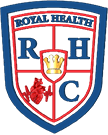Radiology Services
Your heart health is our priority
Radiology
Royal Health Heart Center provides a cutting-edge radiology technology for our patients.
The royal health heart center radiologists are dedicated to the safety and comfort of our patients as they undergo diagnostic radiology services. Royal health heart center offers a broad array of outpatient radiology services.
Our radiology services include:
01. Radiography
Royal Health Heart Center provides a full range of routine radiography services including chest, spine, extremity, head, and abdomen imaging.
02. CT
CT or Computed Tomography (also known as a “CAT” scan for Computed Axial Tomography) provides head-to-toe images of the body. The royal Health Heart Center CT scanner provides a one-second helical scans, minimizing the amount of time for our patients.
03. MRI
Magnetic Resonance Imaging, or MRI, is used to diagnose conditions affecting soft tissues in the body such as the muscles and nerves in backs and necks. A related technology called Magnetic Resonance Angiography, or MRA, permits non-invasive arteriograms without the use of dyes or medications.
04. Ultrasound
Ultrasound imaging, also called ultrasound scanning or sonography, involves the use of a small transducer (probe) and ultrasound get to expose the body to high-frequency sound- waves.
It is a non-invasive medical test that helps physicians diagnose and treat medical conditions, and can be performed on various area of the body including abdomen, heart, carotid artery, head and others.
05. Echocardiogram
An echocardiogram; often referred to cardiac echo which is an ultrasound of the heart, it has become routinely used in the diagnosis, management, and follow-up of patients with any suspected or diagnosed heart disease.
It can provide plenty of helpful information, including the size and shape of the heart, pumping capacity, and the location and extent of any tissue damage, it is also giving physicians other estimate of heart function.
06. Stress Echocardiogram
It is also known as a stress echo, utilizes ultrasound imaging of the heart to assess the wall motion in response to physical stress. First; this image will be taken at rest to have a baseline of the patient’s wall motion at a resting heart rate, then the patient will walk on treadmill or use another exercise modality to increase the heart rate to their target heart rate.
